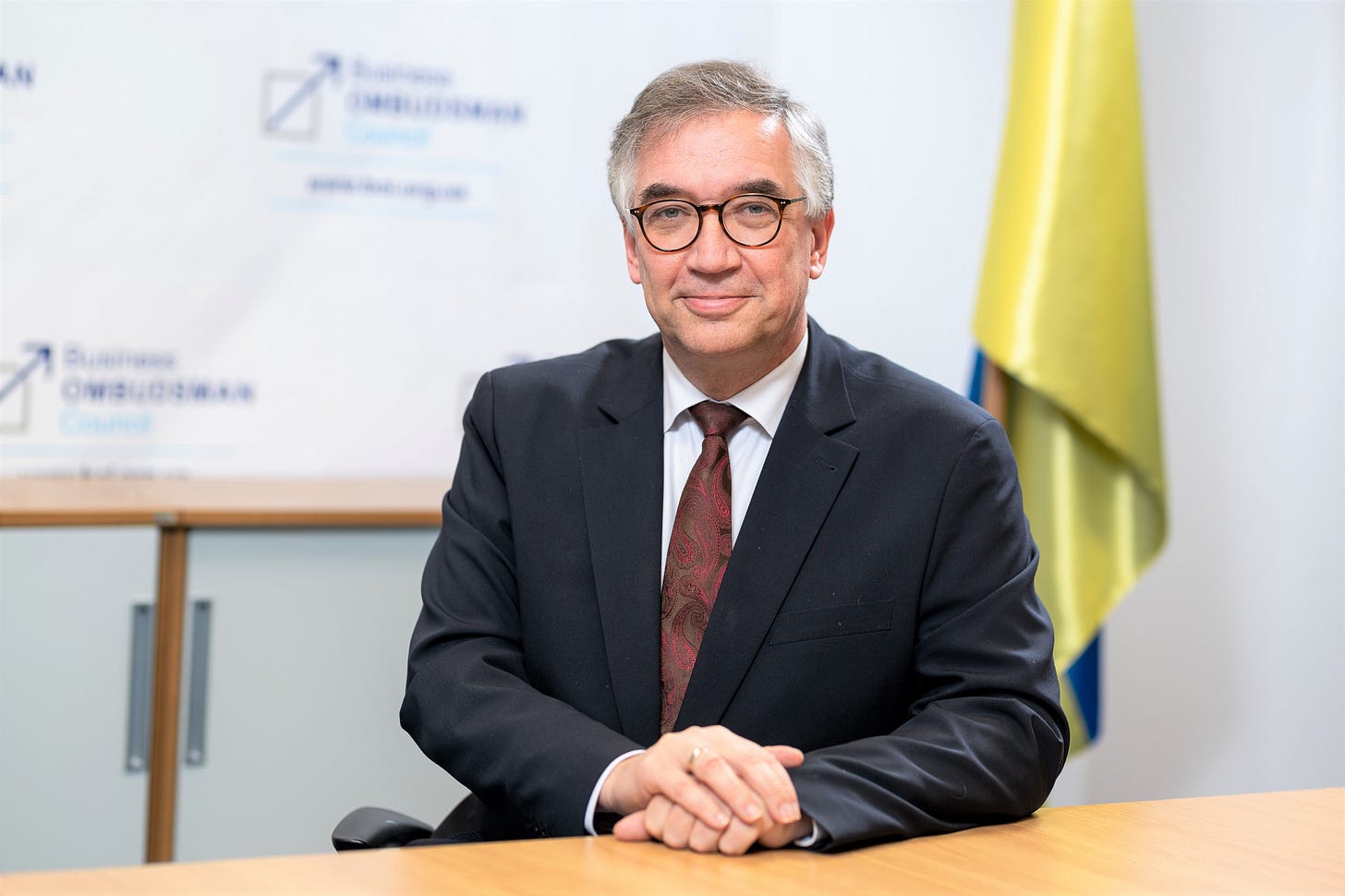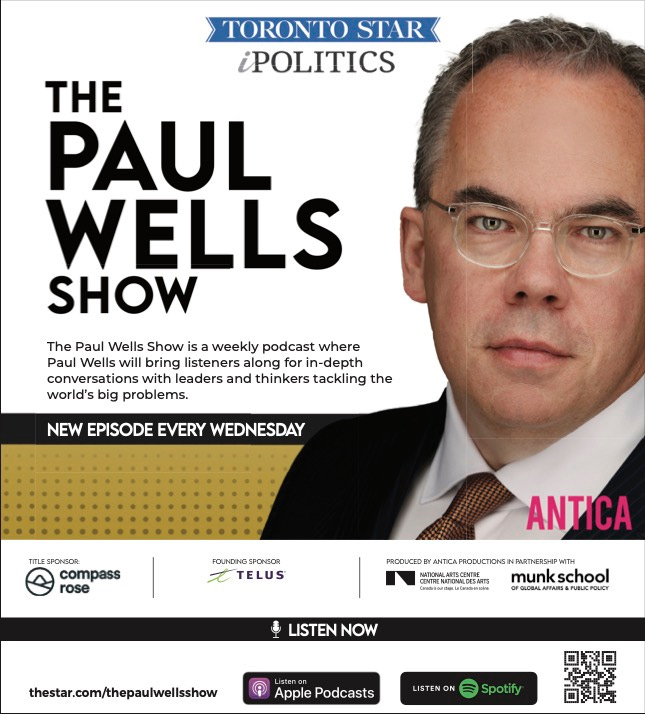The Paul Wells Show: A Canadian in Ukraine
On the podcast, Canada's former ambassador to Ukraine, Roman Waschuk
History is once again starting to move very fast in Ukraine. Only today, Vladimir Putin called up reserves as his brutal stupid invasion of Ukraine continued to falter. I thought a little perspective might help.
Recently I interviewed Roman Waschuk, who was Canada’s ambassador to Ukraine from 2014 to 2018. So he arrived just after the Maidan uprising (catch up with that on Netflix) and worked closely with the Harper and Trudeau governments.
I’ve known Waschuk for longer than that. In probably 2004 I met him when he was working at Canada’s embassy in Berlin. We had beer at a café by the Spree River. Some public servants are properly skittish about talking to a reporter. Some stick to files and don’t consider the big picture. Waschuk wasn’t one of those.
He surprised me by becoming Ukraine’s Business Ombudsman in January. It’s a role that has often gone to non-Ukrainians. It’s designed to give businesses, struggling for fair and predictable treatment, somewhere to turn. He surprised me more by staying on the job after the Russian army moved in. As we discuss in the podcast, even a country at war isn’t only doing war.
Our conversation covered three decades of Russian and Ukrainian history, from Gorbachev’s Moscow to Zelenskyy’s amazing stand. Inevitably it’s also Canadian history too. Waschuk says Canada has often mattered more to Ukraine’s fate than it has wanted to. Ours is not a country that always handles responsibility well.
And finally, Waschuk speculates about what’s next for the Putin regime in Moscow. He’s not sure Putin is done paying for his stupidity.
Here’s where you can find The Paul Wells Show. Follow or subscribe at Apple Podcasts, Spotify, Amazon Music, Google Podcasts, or wherever you listen to your favourite podcasts. When you smash that Subscribe button, my little heart grows big.
I’m so grateful to our Founding Sponsor, Telus, and our Title Sponsor, Compass Rose. I couldn’t get this show to you without their generous help. The institutional basis for this work is my post as the inaugural Jouralist Fellow-in-Residence at the University of Toronto’s Munk School of Global Affairs and Public Policy. Our Ottawa partner is the National Arts Centre. Antica Productions turns it all into a podcast and keeps all our many partners in the loop. The Toronto Star and iPolitics distribute and promote The Paul Wells Show. Thanks to them all.
Supplementary reading:
• Retired US General Ben Hodges says the momentum of Russia’s defeat may now be irreversible.
• Tim Mak for NPR considers the onset of winter.
• A widely-noted talk from Waschuk, before the invasion, about the West’s long and often frustrating relationship with Ukraine.






Today's report from Julia Ioffe (my favourite Putinologist - she even observes and comments on his hand gestures) on The Powers That Be podcast doesn't relay any info on the brittleness of the regime in Moscow, but she does reveal some very embarrassing details from an international visit Putin made to Uzbekistan for something called the Shanghai Cooperation Organization. On top of having to suck up to Xi, he got "reamed out" by Modi and basically pantsed by the Turkish President. As Ioffe points out, "they can smell the chum in the water."
Thanks Paul Wells, interesting interview.
I can't tell you how good it was to have the importance of the training the Canadian Armed Forces provided and continues to provide to Ukrainian military recognized. Training is not as showing as weapons systems, but it is vital. Having trained soldiers, especially junior Officers and NCO, likely made all the difference in the early days of the invasion. You can have the most modern weapons out there but if you lack the skill and tactical knowledge to employment effectively it does not matter.